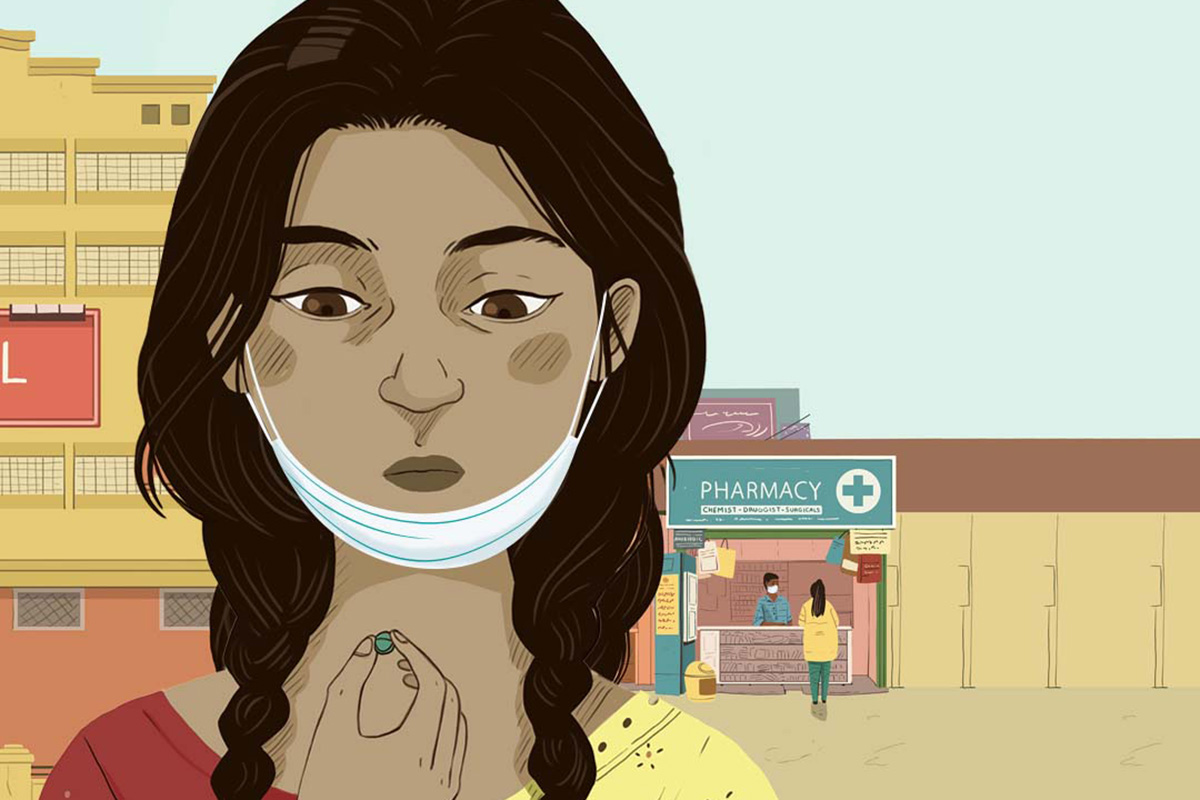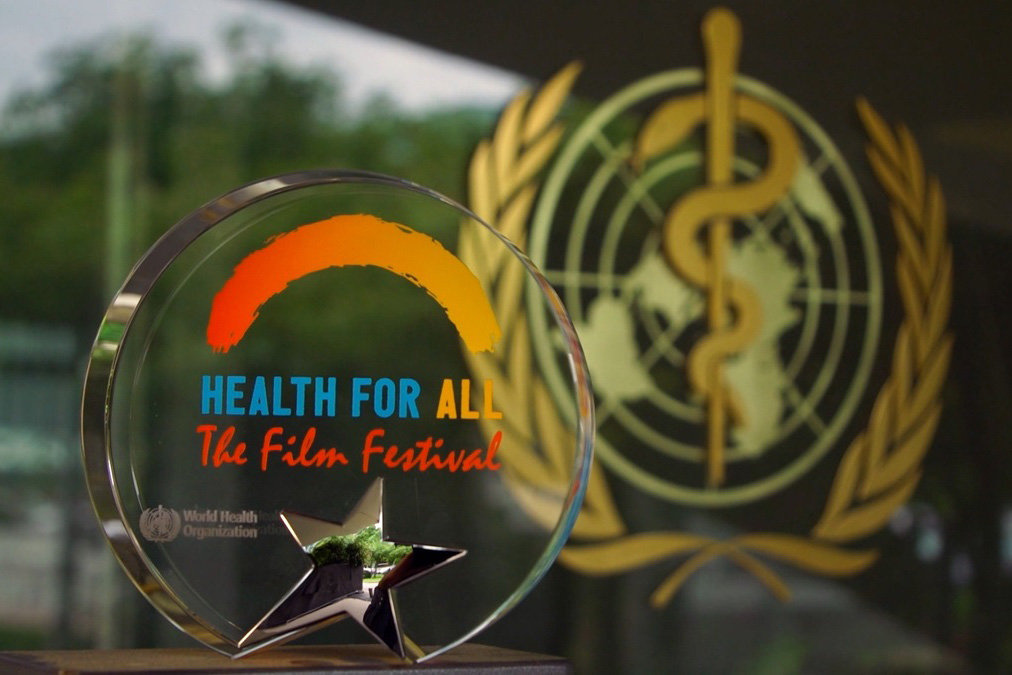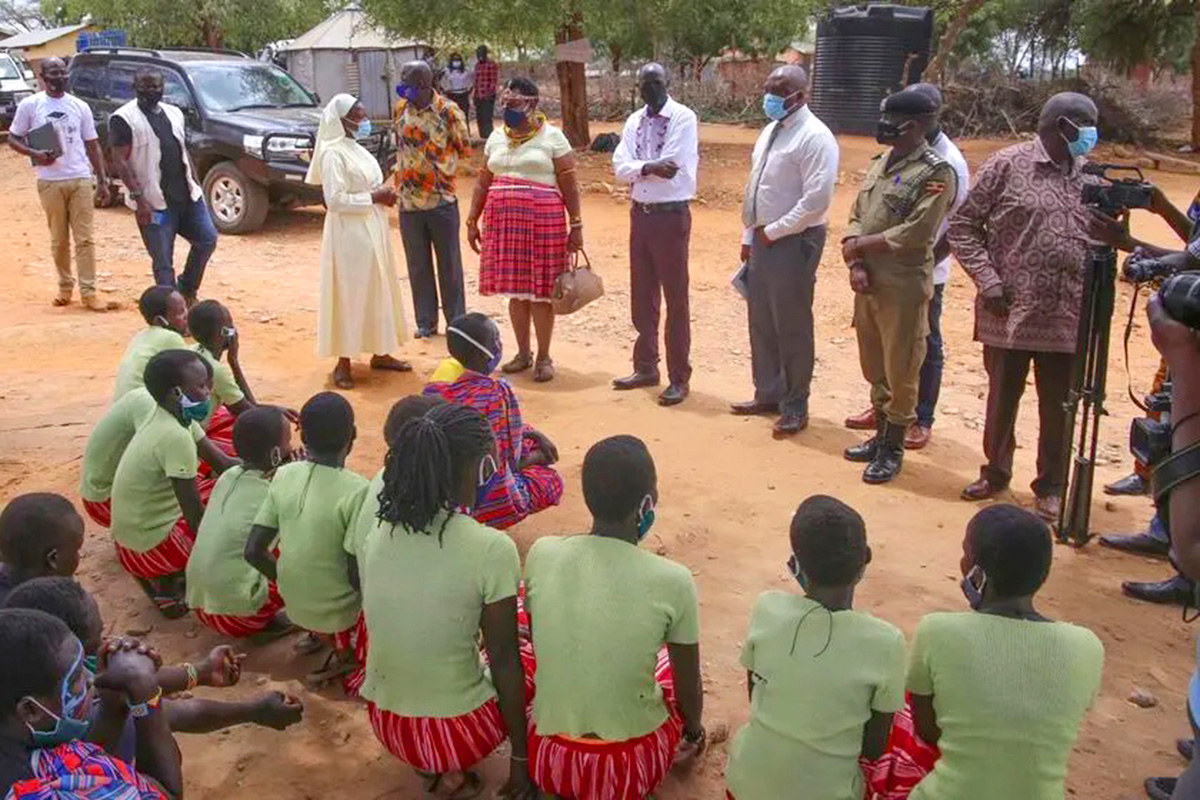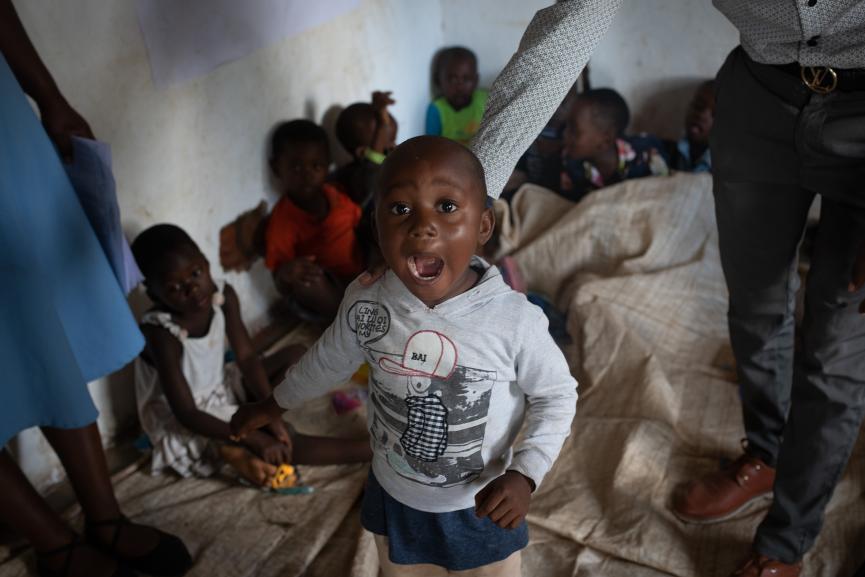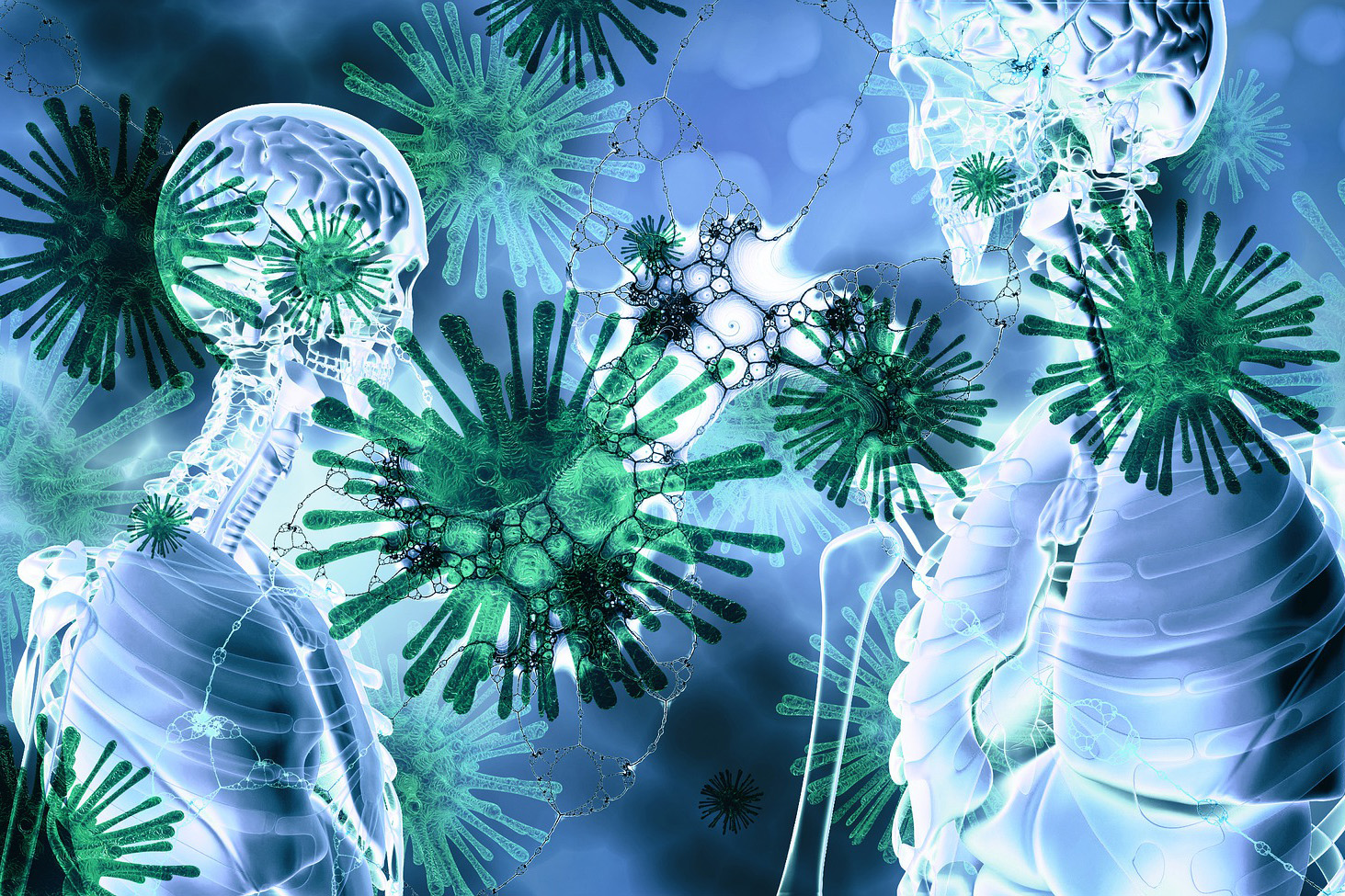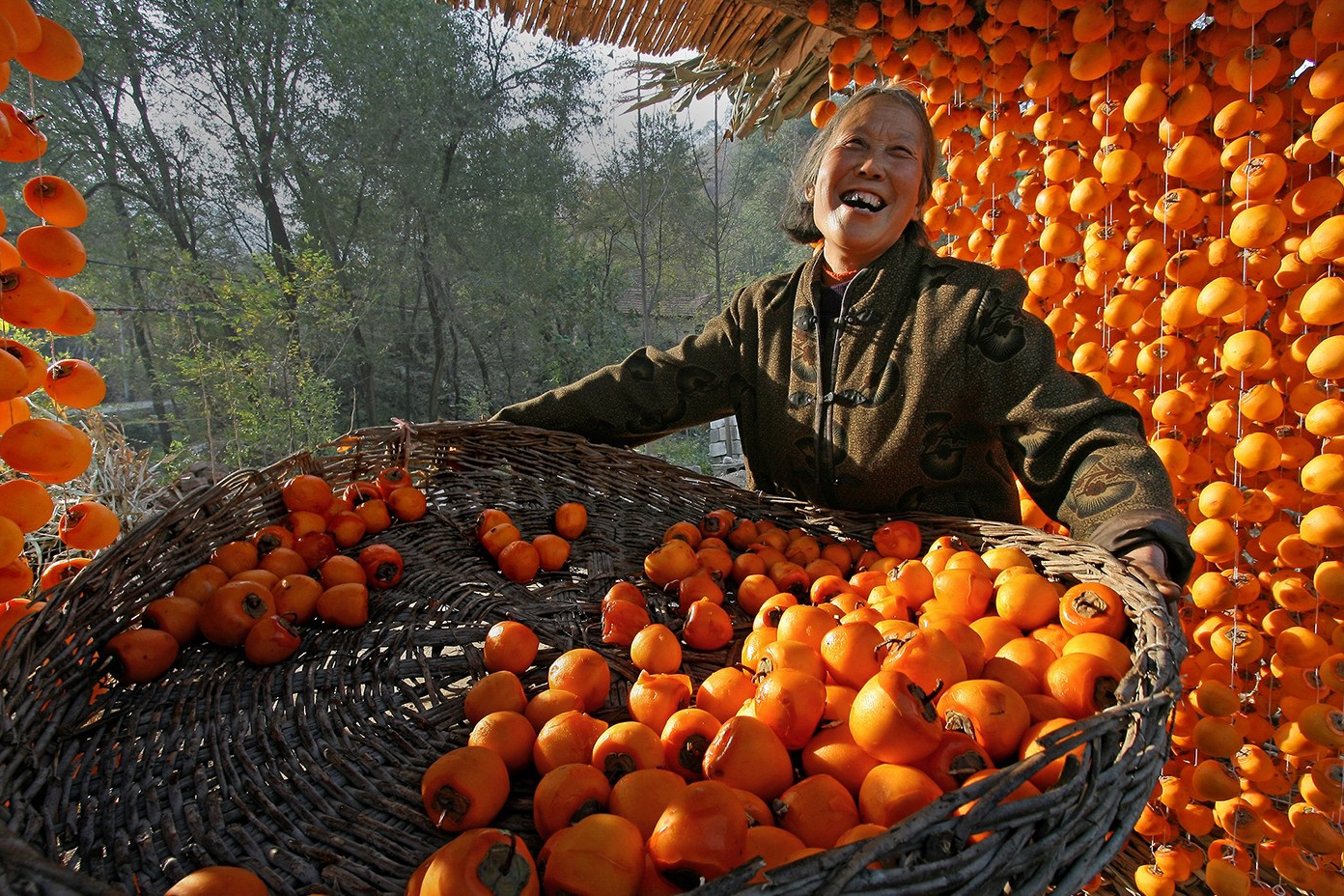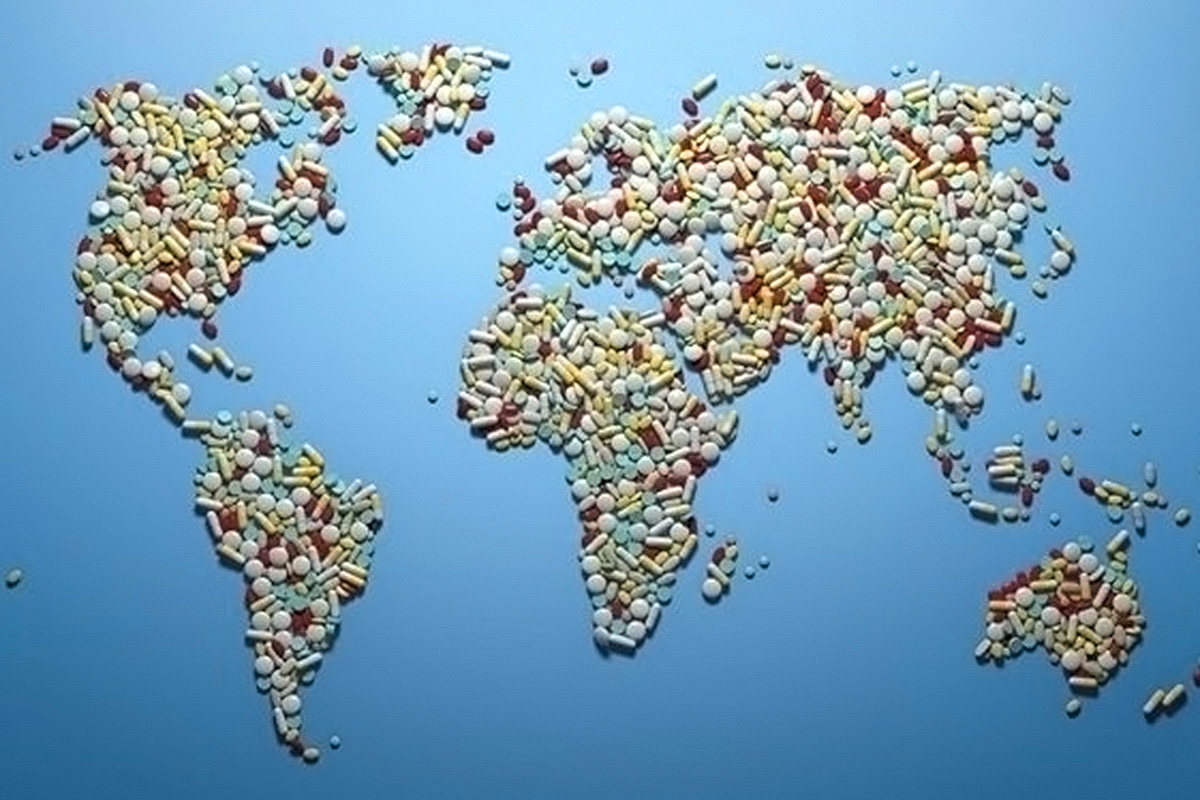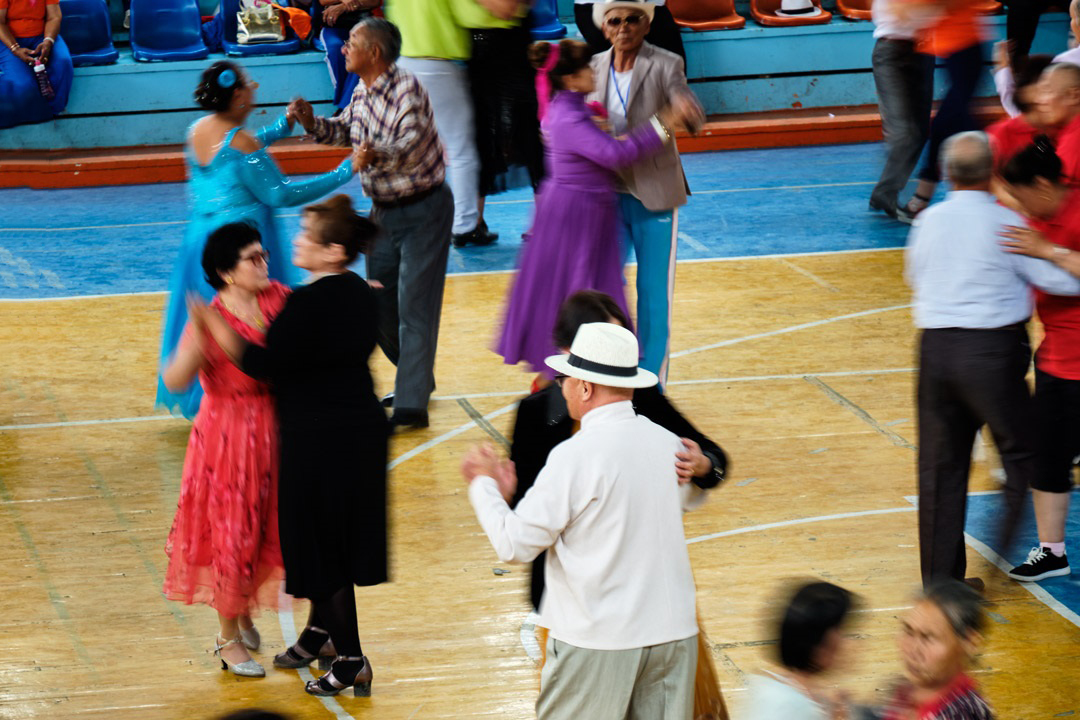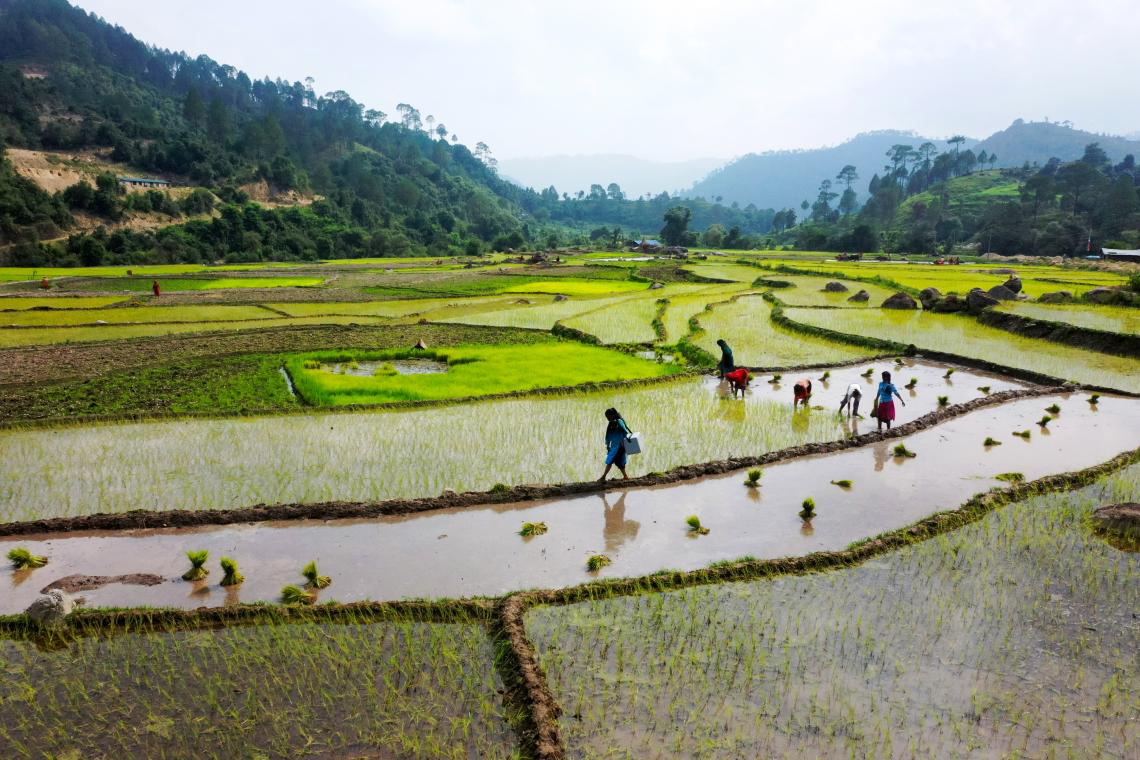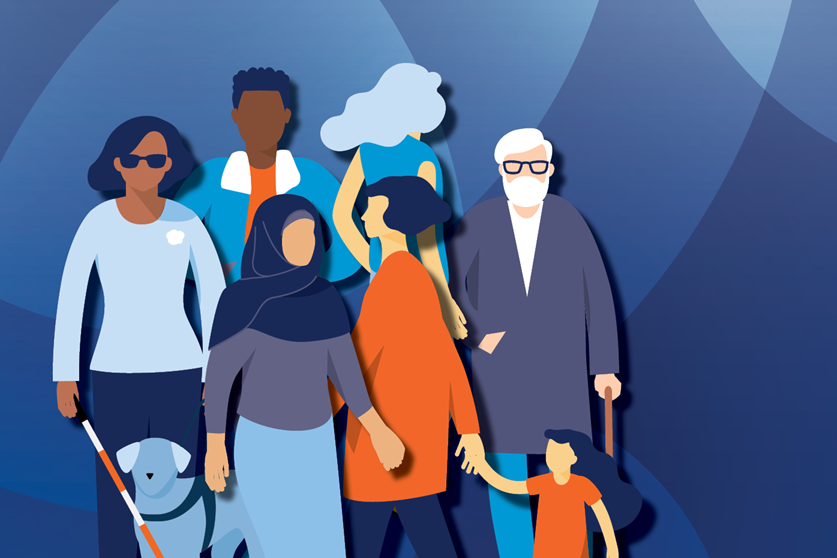Antimicrobial resistance (AMR) occurs when bacteria, viruses, fungi and parasites change over time and no longer respond to medicines. As a result of drug resistance, antibiotics and other antimicrobial medicines become ineffective and infections become increasingly difficult or impossible to treat. Researchers estimated that AMR in bacteria caused an estimated 1.27 million deaths in 2019. World Antimicrobial Awareness Week (13 – 19 November) is a WHO global campaign that is observed annually to improve awareness and understanding of AMR and encourage best practices among the public.
Health
WHO calls for short films for the 4th edition of the Health for All Film Festival, recruiting year after year a new generation of film and video innovators to champion and promote health issues.
As an Artivist, Nikkolas Smith's mission is to inspire people to take action and make a positive change in the world. His latest artwork is part of an exhibition presented and organized by the UNFPA-UNICEF Joint Programme on the Elimination of Female Genital Mutilation (FGM). The exhibition highlighted the importance of engaging men and boys in eliminating female genital mutilation.
UNFPA reports on Pokot girls being lured into Kenya from Uganda, at the height of the COVID-19 pandemic. The reason: To undergo female genital mutilation. The perpetrator: One of their friends.
After millennia of living with poliovirus and the suffering the paralysis it causes, today nearly everyone lives in a polio-free country. However, cases of polio have been recently reemerging worldwide, including in Malawi. There are several factors behind those outbreaks, including conflict and displacement, disruptions caused by the COVID-19 pandemic, and vaccine hesitancy. With support from UNICEF, a nationwide immunization campaign was launched in Malawi in March 2022 and its impact has been profound. Since the vaccination drive began, about 9 million children in Malawi have received a polio vaccination. Find out more about the campaign here.
A new One Health Joint Plan of Action was launched by FAO, UNEP, WHO, and partners. This first joint plan aims to integrate systems to better prevent, predict, detect, and respond to health threats. This initiative seeks to improve the health of humans, animals, plants, and the environment, while contributing to sustainable development. The five-year plan focuses on expanding capacities in six areas: health system capacity, zoonotic epidemics, endemic zoonotic, neglected tropical and vector-borne diseases, food safety risks, antimicrobial resistance and the environment.
Research by the ILO and the WHO has found that billions of working days – and billions of dollars – are lost every year because of work-related mental health issues. What are the psychosocial risks associated with modern workplaces, and can we make mentally healthy workplaces the new norm? In this episode of the Future of Work Podcast, Susanna Harkonen, WHO’s Pan-European working group on workplace mental health, and Nina Hedegaard Nielsen, occupational health and safety at The Danish Confederation of Professional Associations, explore how we can improve psychosocial health and safety at work.
The World Health Summit (16-18 October) is the international strategic forum for global health. Held annually in Berlin, it brings together stakeholders from politics, science, the private sector, and civil society to set the agenda for a healthier future by inspiring innovative solutions for better health and well-being for all. The World Health Summit strengthens collaboration and open dialogue guided by science, fosters global health as a key political issue and promotes the global health debate in the spirit of the UN Sustainable Development Goals: SDG 17 “Partnership for the Goals.”
The overall objective of World Mental Health Day on 10 October is to raise awareness of mental health issues around the world and to mobilize efforts in support of mental health. The Day provides an opportunity for people working on mental health issues to talk about their work, and what more needs to be done to make mental health care a reality for people worldwide. WHO and partners are launching a campaign for all stakeholders to come together to recognize progress in this field and to be vocal about what we need to do to make mental health & well-being for all a global priority.
Medications are the most widely utilized interventions in health care, and medication-related harm constitutes the greatest proportion of the total preventable harm due to unsafe care. For this year’s World Patient Safety Day, WHO highlights the theme "Medication Safety" to recognize the complexity of medication-related harm prevention and reduction. Along with the Medication without Harm campaign, the Day emphasizes the need to adopt a systems approach and promote safe medication practices to prevent medication errors and reduce medication-related harm.
WHO is committed to supporting meaningful engagement of people living with noncommunicable diseases and mental health conditions around the world. People with lived experience often can offer valuable expertise on how to manage and improve their individual health as well as the health of fellow community members. Their first-hand insights can help shape policies, create better health programmes, and inspire others to contribute. A new film series sheds light on their experiences.
Cycling is an increasingly popular means of transportation in cities like Bogota, but currently only 24% of bicycle trips there are made by women. There are risks that prevent more women from choosing the bicycle for transportation. Find out more about Bogota’s initiative to achieve parity of trips, which is part of the PAHO/WHO Global Project on Urban Governance for Health.
Sexual health is relevant throughout a person’s life, from adolescence into older age – not only during one's reproductive years. It is determined by the quality and safety of people’s relationships: with oneself and other individuals, with family and friends, and the society in which we live, including the gender norms that shape our experiences. These relationships are themselves dependent on whether everyone’s human rights related to their sexuality are realised and protected. On World Sexual Health Day (4 September), WHO celebrates every person’s right to sexual wellbeing.
In a remote corner of far-western Nepal you see communities in the distance, perched on top of the hills. Bringing vaccines to the children and families that live in remote communities often requires steep climbs and navigating treacherous roads and a strong cold chain. The cold chain refers to a series of precisely coordinated events in temperature-controlled environments to store, manage and transport the doses. To facilitate this, UNICEF has been working closely with Nepal’s government and key partners, to expand and strengthen the country’s cold chain capacity.
Millions of refugees and migrants face poorer health outcomes than their host communities, especially where living and working conditions are sub-standard, according to a WHO report.

